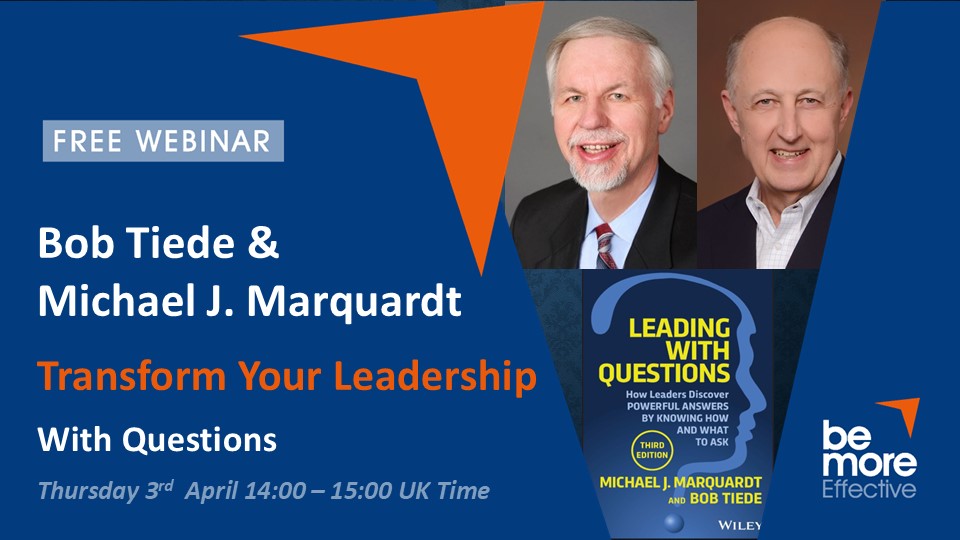Getting What You Want
Psychologists have known for decades that you get the behaviour that you reinforce.
Perhaps the most famous example is Pavlov’s dog. You may remember that by ringing a bell at the same times as delivering dinner, he was able to get his quadrupeds to salivate solely by ringing it at other times. Although Pavlov may have been the first to publish these findings in an academic journal, it had been known long before him. It’s because of it that animals of any kind have been able to be domesticated and trained.
In organizations, we reinforce the behaviour we get.
And if you think about it, it only stands to reason that this would be the case. Most people want to avoid pain, and so if they can do something that will prevent it, then they will most of the time. The problem is that we’re often unwilling to provide the incentive or reward that will yield that behaviour. To put it another way, we’ll do something ordinary and then expect the extraordinary.
Life’s not like that.
Take compensation, for example. Although it’s been demonstrated since the 1960s that money – at least in the quantities that most people get in terms of rises, and so on – doesn’t motivate, managers point to it frequently as the reason why they experience such a high turnover of staff. The truth is that people expect to be paid what they’re worth. It’s when you fail to do so that problems arise. But that’s certainly not the primary reason they leave your company or organization, and then go someplace else. More than likely, it’s because they don’t like you. They don’t like the fact that you don’t respect them or recognize their knowledge and experience.
Justice, Fairness and Honesty
There’s more. Not only do people expect appropriate compensation, they also expect organisational justice and honesty. Here’s a real world example.
During the first airing of the British version of The Apprentice, the protagonist was left with two people from which to choose to win. By then it was obvious that neither candidate was the right one. The best ones had been fired already. It made for interesting television, but it was the result of a series of bad decisions which had led to a choice between the lesser of evils. During the discussion near the end, one of the candidates was taken aback by something that the protagonist said. The candidate exclaimed, “But that’s not fair”, to which the reply was, “the only fare I’ll give you is bus fare”.
Folks, the people who work for you expect you, and have a right to expect you by the way, to be fair with them. It cuts both ways. If you won’t be fair with them, then why should they trust you at all, in anything? It’s impossible for them to know if you will support them or stab them in the back. The smartest thing that that “contestant” could have done was to gather his things and tell the protagonist that he wasn’t going to work for someone he couldn’t trust.
There’s a rumour among Vietnam Vets. It’s that some commanders were shot in the back. Think about that.
You get the behaviour you reinforce.
So what should you do differently?
Start by identifying what you want. Then work backwards. The outcome you want must be desirable in the eyes of those who are expected to deliver it. It cannot be the lesser of evils, but something that they want. When you know that, then you can build in opportunities that will enable them to get it.
At such time as they get really good at it, don’t move the goal posts, even if it makes them look better than you. You’ll demoralise them faster than the time it took you to read this sentence.
Theoretically, you shouldn’t have to look for ways to help people avoid pain. That’s a given. But there may be some who will attempt to engineer ways to get what they want through means that are other than what you have specified. If that happens, or looks likely, then you need to ask yourself it if matters. Which is the most important, the process or the outcome? Unless you have a good business reason – which means that your personal ego is left out of it – to do anything else, manage the outcome and leave the process to them. After all, you don’t have a corner on good ideas any more than they do.
If you reinforce whatever brings the organization closer to its goals, then you’ll find that everyone will soon be pulling in the same direction; and after all, that’s what you wanted in the first place, isn’t it?
If you want to release the unused potential and capacity in your team, contact me here
For more information please send a message via the Contact Us Page. Or you can register for an upcoming webinar.


